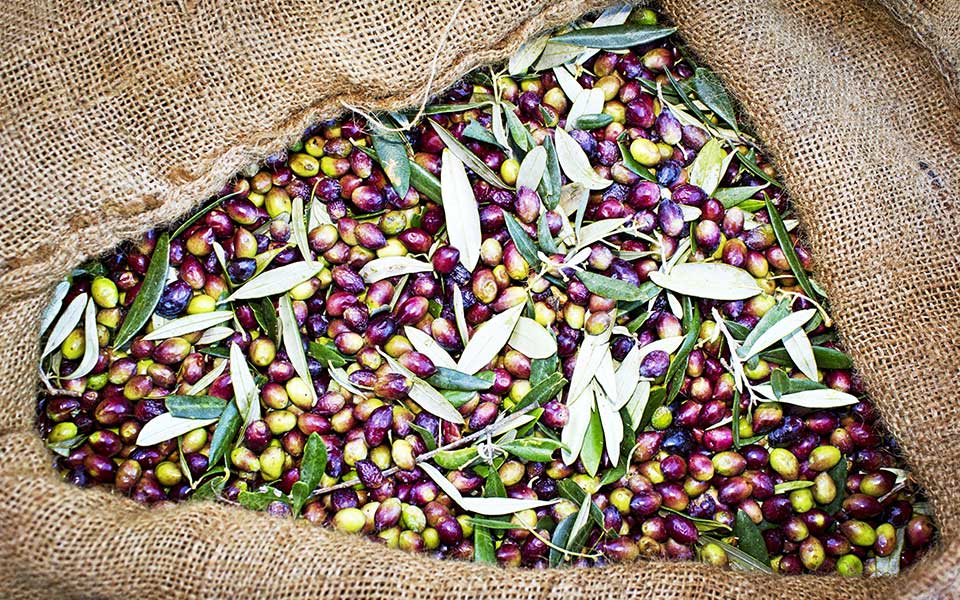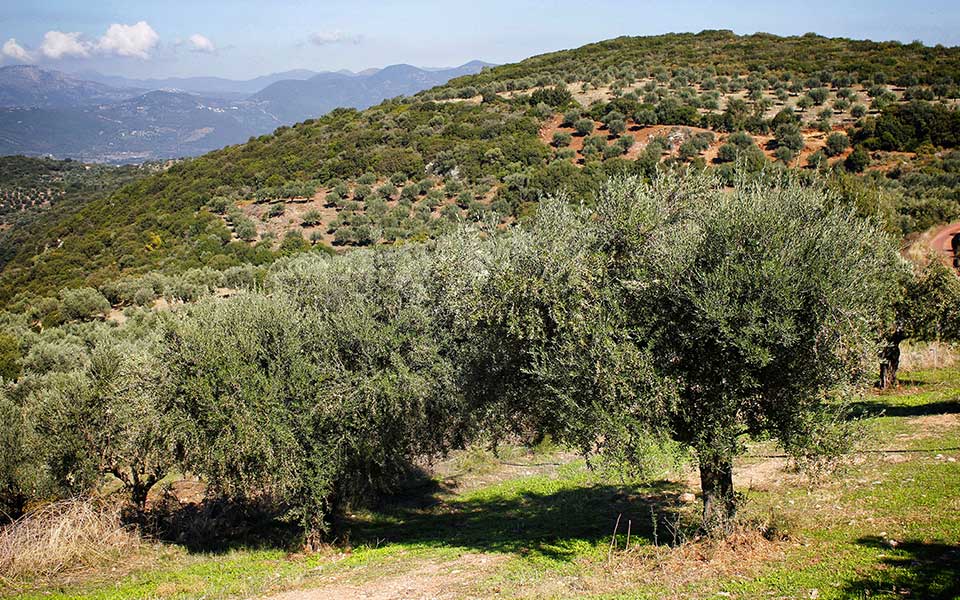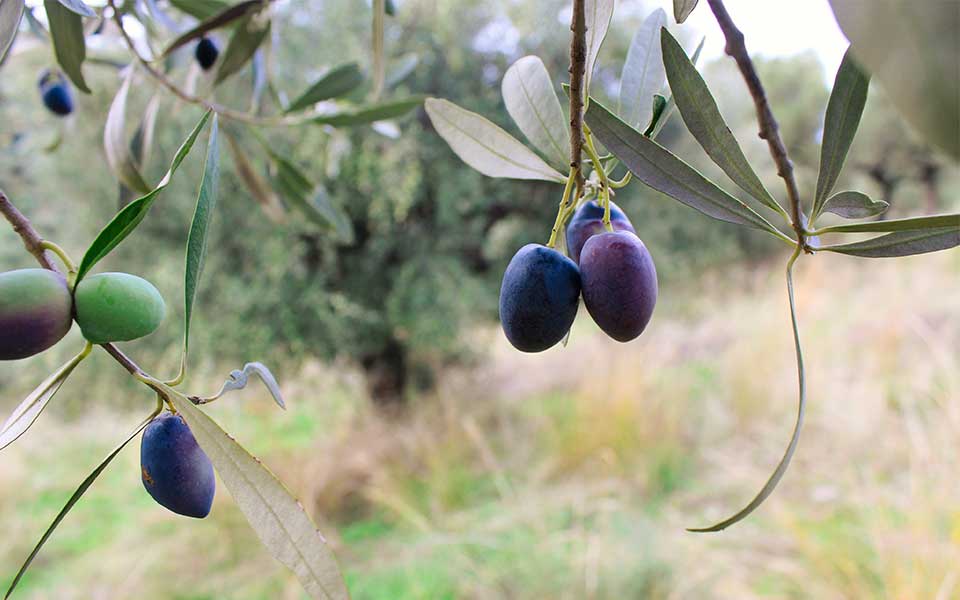“Olive oil is one of the most important reasons why Crete is known in the rest of the world. Based on this, we can understand that olive oil on our island was and will be the king of foods!” exclaims oil producer Eftychis Androulakis in a perfect example of Cretan passion for a product that is central to the island’s tourism, cuisine, economy, and history.
Tourism, Cuisine, and Health
Catherine Papaioannou (Elasion) evokes a welcoming picture of the “olive groves dotting the landscape,” where tourists can “explore and experience traditional olive harvesting techniques firsthand. Olive oil mills and production facilities provide insightful tours, allowing visitors to witness the process of oil extraction” at harvest time “and learn about the history and importance of olive oil in Cretan culture” year-round. “Olive oil tastings offer a sensory journey,” enabling tourists to “appreciate the distinct flavors and aromas unique to Crete.”
Androulakis (Pamako), who collaborates with Biolea at their agrotourism/food tourism destination in northwestern Crete, believes “slowly but steadily, olive oil tourism is becoming one of the most significant food tourism in Crete, alongside wine tourism. Producing and bottling an olive oil and sharing knowledge about it is one of the most important ways to help people understand the difficulty of production, but also the art behind it. That’s why in our olive mill we also have a restaurant: we connect olive oil with Cretan cuisine, as it has been the main ingredient of our cuisine and culture since Minoan times.”

© Shutterstock
While Crete offers many attractions for tourists, “one of the main reasons why people come to our island is the Cretan diet, where olive oil occupies the most important place,” according to Stavros Tzedakis, Region of Crete Vice Governor for Agricultural Economy. In the Cretan diet, olive oil “is the beginning and the end,” insists Manolis Fragkakis, president of the Cretan Olive Oil Network. In fact, Emmanuel Vantarakis (Efkrato) believes “Cretans still hold the record of yearly olive oil consumption per person” worldwide. They use it for marinating, preserving, cooking, frying, baking, and finishing.
“Omnipresent in Cretan recipes, enhancing their depth and character,” according to Papaioannou, olive oil is an ingredient in dishes including vegetables, meat, and fish, as well as in dressings, sauces, savory pies, breads and desserts. Papaioannou believes that “in Cretan cuisine, olive oil transcends mere ingredient status; it symbolizes the region’s abundance, heritage, and the Mediterranean way of life.” Maria Gdontaki (Savouidakis) adds that olive oil also “symbolizes hospitality, tradition, and connection to the land in Cretan culture.”
Many scientists consider the traditional Cretan diet the original basis for the famously healthy Mediterranean diet. As Gdontaki points out, “health-conscious travelers are drawn to Crete’s Mediterranean diet. Cretan olive oil is rich in antioxidants, monounsaturated fats, and other nutrients that promote heart health and overall well-being.” Olive oil is often a part of tourists’ “culinary exploration, cultural immersion, sustainable tourism, and wellness activities” on the island, as Gdontaki notes.

© Shutterstock
History and Economy
Looking to the past, Gdontaki explains, “olive oil has played a multifaceted role in Cretan history, serving as an economic foundation, cultural symbol, nutritional staple, environmental steward, and global ambassador.” Through the millennia, it has been “essential for dietary, medicinal, and religious purposes, shaping the island’s landscape and symbolizing peace and prosperity,” as Alexis Perdikakis (Renieris) says. “The enduring legacy of olive oil,” he adds, “is highlighted by archaeological discoveries and preserved traditions, illustrating its timeless significance in Cretan life.”
Olive oil has served the basic needs of Cretans. As Fragkakis sees it, “olive oil was the poor man’s piggy bank. With this he had light. With this he preserved his products. With this he said goodbye to his people who were leaving life. With this he cleaned his wounds. With this he made votive offerings to the saints.”
All of this has been possible because “olive oil is the beginning and the end of the agricultural economy” on the island, according to Fragkakis. With 35 to 37 million olive trees now growing in Crete, covering 65 to 68% of the largest Greek island’s agricultural land, it is not surprising that “olive oil is the most important agri-food product” for Crete, as it is described by Emmanouil Karpadakis, vice president of the Cretan Exporters’ Association.
After all, olive oil income is three times greater than income from the rest of the Cretan agri-food sector (excluding animal products), according to Crete’s director general, Konstantinos Ypsilantis. Ypsilantis explains that Crete has produced from 60,000 to 120,000 tons of olive oil annually during the last two decades–about one third of Greece’s olive oil.

© Shutterstock
Quality
This is mainly excellent olive oil, according to Eleftheria Germanaki, director of the Sensory Evaluation Laboratory of Crete and an international competition judge. Data from the laboratory show that 74% of the samples received there are classified as the highest category, extra virgin olive oil (EVOO), according to their sensory profile.
This high quality has been recognized in several ways. For example, according to European Union quality schemes, there are 10 PDO olive oils of Crete and one PGI olive oil of Chania, Crete. In addition, 33 Cretan EVOOs are certified with a Cretan trademark based on quality control certification overseen by the Agronutritional Cooperation of the Region of Crete. Moreover, the regional government and the Agronutritional Cooperation have supported a Cretan Olive Oil Competition since 2015 to spotlight the island’s high-quality EVOOs.
At the 2024 competition awards ceremony, Governor of Crete Stavros Arnaoutakis pointed out important progress on the island in recent years in terms of modernization of cultivation and production procedures, continuous upgrading of olive oil quality, and promotion of Cretan olive oil abroad. The Region of Crete has also established a new olive oil training program that covers everything from modern “best practices” in cultivation, milling, and bottling to olive oil tasting, use, and benefits.
The governor emphasized that the “excellent quality and high nutritional characteristics of Cretan olive oil” give it a well-deserved advantage in the world market. Ongoing efforts to further elevate its quality point toward an even brighter future for the island’s liquid gold.
All businesses, organizations, and competitions involved with Greek olive oil, the Mediterranean diet, and/or agrotourism or food tourism in Greece, as well as others interested in supporting Greeks working in these sectors, are invited to consider the advertising and sponsorship opportunities on the Greek Liquid Gold: Authentic Extra Virgin Olive Oil website. The only wide-ranging English-language site focused on news and information from the Greek olive oil world, it has helped companies reach consumers in more than 220 countries around the globe.
Originally published on Greek Liquid Gold: Authentic Extra Virgin Olive Oil (greekliquidgold.com). Visit the site for recipes with olive oil, photos from Greece, agrotourism and food tourism suggestions, and olive oil news and information.












